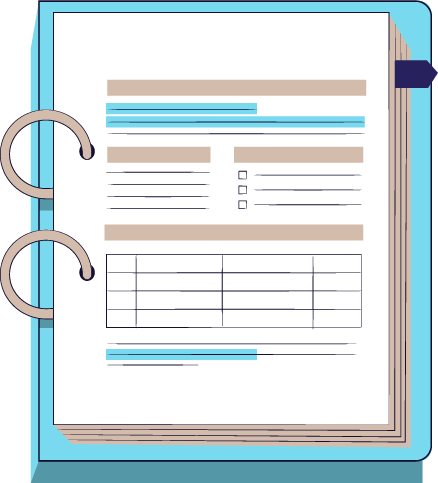Table of Content
Share This Article
- Published: Nov 25, 2025
- Last Updated: Dec 6, 2025
- 🔊 Listen
Quick Reads
- BAS accuracy depends on clean, reconciled records and correct GST coding.
- Classifying transactions properly is the foundation for correct GST, PAYG, and instalment reporting.
- Reviewing BAS figures before lodging helps catch errors that trigger ATO scrutiny.
- On-time lodgement and payment prevent penalties, interest, and compliance headaches.
- Outsourcing BAS preparation can reduce stress and improve compliance accuracy for Australian businesses.
BAS time often becomes stressful for Australian businesses because small gaps in record-keeping or unclear GST treatment can throw the whole statement off. The pressure builds quickly when transactions pile up, and the filing deadline approaches, making the task feel bigger than it is. A steady process and the right checks can make BAS preparation far more manageable and reduce the usual rush.
In this blog, we will explain the process of preparing BAS and the important checklist to keep in mind.

BAS Done Right, Every Time
Clean calculations, clear figures, no last-minute rush.
How to Prepare BAS Statements Correctly?
Australian businesses prepare their BAS by first gathering and reconciling financial records, classifying transactions, and calculating the relevant tax components. Once the numbers are accurate, they generate and review their BAS reports, lodge the statement, and make the required payment. For a better understanding of BAS preparation, see the steps below:
1. Gather and Reconcile Financial Records
- Confirm BAS Lodgment Period (monthly, quarterly or annually). Businesses with over $20m turnover lodge monthly, under $20m voluntarily lodge quarterly, and registered small operators may lodge annually).
- Collect sales records and all issued tax invoices
- Gather purchase bills and supplier tax invoices
- Download bank, credit card, and loan statements for the BAS period
- Compile payroll details, including gross wages and PAYG withholdings
- Record petty cash activity and other cash transactions
- List any capital asset purchases such as equipment or vehicles
- Reconcile all bank and credit card accounts to ensure every transaction is accurately recorded
2. Classify Transactions and Calculate Tax Components
- Apply correct GST codes to each transaction (GST Free, BAS Excluded, GST on income)
- Calculate GST on sales (G1), which is the GST collected from customers
- Calculate GST credits (G10 and G11) on eligible business purchases
- Verify the PAYG figures, including W1 (total wages paid) and W2 (tax withheld), to ensure they are accurate
- Review your PAYG instalments that appear pre-filled by the ATO
- Include any additional applicable taxes, such as fuel tax credits, Luxury Car Tax, or Wine Equalisation Tax (WET)
3. Generate, Review, and Validate BAS Figures
- Run the Activity Statement Report in your accounting software, or total the figures manually if preparing without software
- Recheck all figures for accuracy or unusual variances compared to previous periods
- As part of validating the data, make sure the final figures align with prior periods where applicable and round them to whole dollars before lodging
4. Lodge the BAS
- Lodge BAS through the ATO Business Portal or provide it to your registered BAS expert or tax agent
- Submit your BAS by the due date, even if it is a nil return
- Keep the lodged BAS and supporting documents for at least five years
5. Make Payment or Receive Refund
If you owe BAS, pay it by these ATO deadlines:
- Monthly BAS: 21st of the following month
- Quarterly BAS:
Q1 (Jul–Sep): 28 Oct
Q2 (Oct–Dec): 28 Feb
Q3 (Jan–Mar): 28 Apr
Q4 (Apr–Jun): 28 Jul
- Annual BAS: 31 October (or the date of your tax return if lodged through an agent).
If you are due for a refund, the ATO will deposit the amount into your nominated bank account.

Important Checklist to Follow While Preparing for BAS
Your goal is simple: clean data, accurate reconciliations, and figures that genuinely reflect your activity for the period. A quick upfront review ensures your GST claims are correct, your payroll numbers line up, and no adjustments or obligations slip past you.
Below is the detailed checklist to guide you through each step.
- Double-check the BAS reporting period and lodge-by date, so you’re working within the correct timeframe.
- Reconcile every bank, sales, and purchase account to ensure no missing or duplicated transactions slip through.
- Verify all invoices and receipts so GST claims are fully supported and compliant.
- Record any GST adjustments accurately, especially for bad debts, discounts, or private-use corrections.
- Cross-check the PAYG figures (W1 and W2) with your STP finalisation or payroll reports to confirm they match.
- Review your PAYG instalment figures (T1–T4) to avoid overpayment or underpayment.
- Add Fuel Tax Credits if you meet the eligibility criteria and have proper usage records.
- Include any additional obligations such as FBT, LCT, or WET where applicable to your business.
- Lodge and pay your BAS on time to avoid penalties and interest charges.
Why Partnering With a BAS Professional Is the Smarter Choice for Australian Businesses?
Preparing BAS requires solid knowledge of ATO rules, GST classifications, payroll obligations, and the many business deductions that influence your lodgement. While internal checklists and documented procedures are valuable, many Australian businesses are now turning to a more practical solution: outsourcing to specialists.
For businesses across Australia, it has become a reliable way to access qualified professionals who stay up to date with changing ATO requirements, industry-specific compliance needs, and evolving accounting technologies.
At Whiz Consulting, we support Australian businesses with end-to-end bookkeeping outsourcing services, including BAS preparation, payroll management, financial reporting, and day-to-day accounts management, all delivered with strict adherence to ATO guidelines.
If you’re ready to simplify your BAS workload and shift your focus back to growing your business, connect with us today!

Get customized plan that supports your growth
Have questions in mind? Find answers here...
You need sales invoices, purchase bills, bank and credit card statements, payroll details, petty cash records, and any capital purchase documents to ensure all BAS figures are accurate.
GST codes must match the nature of each transaction, like taxable, GST-free, or input-taxed. Using accounting software, checking ATO guidelines, or reviewing with a BAS agent helps prevent misclassification.
Yes, but the ATO may apply penalties and interest. You can request a deferral or payment plan if you expect delays, though approval isn’t guaranteed.
Many businesses use registered BAS agents and outsourced accountants to avoid GST mistakes, ensure compliance, and reduce the workload during busy periods.
You can correct most GST and PAYG withholding errors in your next BAS. Significant errors may require amendment. The ATO provides clear thresholds for adjustments.
Thousands of business owners trust Whiz to manage their account
Let us take care of your books and make this financial year a good one.





